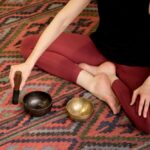This post may contain affiliate links, which means we'll receive a commission if you purchase through my link, at no extra cost to you. Please read full disclosure here.
How do you usually react when you learn a new opinion? Or hear something you’ve never heard before? Do you reject it right away, or get curious? Well, whatever your answer is, I have something new for you today. Get comfortable: we’re going to talk about the best way of learning new things!
The reason I am so hyped up by this topic is that I am passionate about learning new things!
I love learning new things so much that every time I get swamped with work and fall out of my learning-every-day-routine, I start feeling stagnated, stuck and sad. At this point, it’s a need, not a want!
Now, we all want to know how the world works. We all want to believe in something.
And it’s only possible if we know what “opinion options” are out there, and what are the reasons behind them…
And in this post, I’m suggesting an algorithm that worked every single time for me. I’m sharing the best way to comprehend new knowledge or a new point of view in all its depth. The goal is to choose properly what we want to build our opinion around.
Now, I’m not talking about school lessons or exams at the university, but about the knowledge that sooner or later each of us unconsciously begins to strive for. Self-discovery, spirituality, psychology, philosophy, health- and wellness-related questions, even the structure of the Universe and the interconnection of everything in the world, and all that other stuff — to each their own. Things that are more or less subjective.
It’s worth mentioning that learning new skills and knowledge that we obtain after properly processing all the information are extremely significant for personal growth. Like little bricks, they build our identity.
Enough ranting — let’s get right into it!
This post is all about learning new things the right way.
🙇🏻♀️ Why learning new things is important
First of all, it’s SO cool to acknowledge that no matter how much you learn, you still have many more things to explore.
It might sound a little intimidating to some of you… But look at the other side of the coin: it equals endless opportunities and freedom!
Generally, people who have more information have a significant advantage over those who don’t.
But for me personally, the main reasons why learning new things is important are these:
- Learning new things motivates me. When you see how much interesting stuff is out there, you just wanna keep learning!
- It makes life more exciting. It helps me satisfy my need for novelty. No wonder my driving force is Uncertainty! (If you want to know yours, take Tony Robbins’ test at the link: What is your driving force?)
- It shows opportunities for growth. Constant change is inevitable for any living creature, and I’d rather choose my direction by examining my options.
- It makes me a better person. The more I know, the better choice (for myself, others, and the planet) I can make.
- It helps me know myself better. The more I learn about the world and other people, the more I understand myself and my own mind, body, and soul. It also gives me an opportunity to track how I change throughout time, and fully embrace who I am.
- It’s beneficial for my creativity. When I learn something new, I get a new “prism” to look through at my life and my craft which brings a lot of new ideas. It’s an amazing spark of inspiration and excitement every time!
If you got this far in this post, I’m sure you are open to learning new things and want to know more. Love that 🙂
RELATED POST: 41 Amazing Journaling Prompts Any Creative Should Try Right Now
👍🏼 Benefits of learning new things
So what are the benefits of lifelong learning?
I like this quote by Jack Canfield from his book The Success Principles (one of my fav books of a lifetime):
More alarming, the information that allows you to be successful — to be on the cutting edge of your career and profession — is evolving at the same pace. That’s why you must commit to lifelong self-improvement and learning — improving your mind, increasing your skills, and boosting your ability to assimilate and apply what you learn.
Here is what learning new things everyday does:
– Increases brain health;
– Helps you stay fulfilled;
– Lengthens life span;
– Boosts confidence;
– Helps social life;
– Adds to skillset;
– Improves mental health;
– Connects you to “your” people;
– Fights boredom;
– Trains your self-discipline;
– Improves adaptability;
– Increases the power of your mind.
And so many more!
Hopefully, I managed to spark your interest in learning new things… Now it’s time to shine!
RELATED POST: 11 Smart Ways To Make Life Easier (As A Creative)
🪜 The three stages approach
When I was little, I used to believe in everything I was told by an adult I considered an authority — like my parents. In no case would I doubt their words! And we all would do that as kids so I believe it’s natural.
However (and thankfully), things changed.
Obviously, I still respect those people even if I learned that some of their beliefs were far from reality. And I still listen to their opinions and advice, even if I end up not following it…
But starting from a certain age, I began to analyze everything I heard.
So through experimentation, I developed an algorithm for getting to know new information profoundly.
I finally defined and framed this a few years ago when I was reading Sogyal Rinpoche’s The Tibetan Book of Life and Death.
This algorithm allows me to look at the information from all angles and get to the truth. Perhaps, this truth will be subjective to some extent, because I already have some previous experience through which I’m looking at the world… But at least I can justify and explain my point of view. First of all, to myself.
So for me, learning new things comes in three stages.
RELATED POST: How to Stop Worrying About Others and Focus on Yourself
🗺 The first stage — Exploring
The first stage is Exploring — researching, reading, and learning as much as possible about the new topic or point of view while trusting the source of information completely.
The Tibetan Book of Life and Death says that only the one who trusts his teacher and does not doubt their words and actions for even a second can get maximum knowledge. Sogyal Rinpoche calls a teacher a person who has comprehended spiritual knowledge and practice and unselfishly passes it onto his students. In our case, the teacher can be a book, a movie, a person, mother nature, and so on.
So what you need to do is to dive deep and become a committed student for a while. A student who absorbs every drop of information and accepts everything unquestioningly. Let down all the expectations and give up all the opinions that you’ve formed so far — for a while.
Now, this can get a little complicated here, but bear with me: you’ll see how cool this concept is!
So there’s a reason why this approach is so effective.
Here’s how it works:
By letting yourself believe fully in the ideas you are learning, you sort of deceive your mind. Your mind begins to believe that a new worldview is being formed right now, and through analysis, it pulls out all the “pros” that you could ever think of. Even those that are hidden and not visible at first glance. It’s as if you became an active supporter of the ideas that you are studying.
Thus, you come up with the most comprehensive list of pros for the new idea that you are learning. (And in the second stage, you will expose all the “cons”.)
Long story short, it allows you to dig as deep as possible to reveal even the smallest details.
PRO TIP: Make notes and put together a summary of all you’ve learned. Gather the most valuable pieces of information in one place. I recommend using the Notion app since it lets you edit as much as you want compared to a physical notebook (that’s where I’m typing this blog post at this very moment). If you prefer handwriting on paper, use a large notebook and live some space in the margins for the further steps.
I THINK YOU’D ALSO LOVE THIS: An Amazing Detailed Self Love Journal Challenge (2022)
🤨 The second stage — Questioning everything
The second stage is Questioning everything. Once you feel like you’ve covered enough information, it’s time to turn into a hard critic.
Take a different role: someone who’s eager to prove it all wrong. Check, then recheck, then recheck.
Question everything.
By the way, I consider this one of the most essential mottos to follow. It’s also interesting that if you wanted to say it in my native language, you would practically say “doubt everything”.
Actually, let me explain what I mean by that.
Sometimes when I’m reading a book, listening to a podcast, or asking for someone’s advice, some subtle doubts about the information I consume arise in the back of my mind. I then “tick the box” in my mind and return to the topic later to fill in the gaps and define my perspective on the issue.
However, even when there is no doubt, I still go to Google and make sure that the thing that will become my opinion and part of my personality is truly logically justified and can be proven (at least, in my perception).
So the task here is to become a tough opponent of the opinions you’ve been studying. To find all the rebuttals. To subject all the “pros” to criticism.
PRO TIP: Take notes of everything as well. If you find that some new information contradicts what you’ve already learned in the first stage, put those notes together — in the margins of the pages that we kept blank in the first stage, or as a follow-up in your document on the computer. It’s done so that you can compare the two.
⚖️ The third stage — Mapping
The third stage is Mapping.
By this point, all the “pros” and all “cons” have already been processed by your mind. Now it’s possible to see where the scales are tilting.
Read through your notes thoroughly and see what information resonates more with you. Give yourself time — sometimes a few days or weeks are needed to have everything settled down in your head. Go about your day-to-day life and let all the knowledge “brew” for a better concoction. 🙂
It’s the final result of this stage that ultimately shapes your attitude toward the subject.
And that’s it! Knowledge obtained this way is deep and comprehensive and allows you to freely juggle the new information.
Now you have a kind of experience: you’ve seen the problem from two opposite sides, have practically been on two opposite sides, and chose what’s closer to you.
On top of that, you have all the basic knowledge on the topic and will be able to maintain a conversation if need be. AND you’re now able to justify your own opinion and explain your reasons, which is crucial if you need to be convincing.
The more often you follow these steps, the more natural it’ll become.
I’d also like to mention, that while winning an argument might be beneficial at work or with clients, it’s sometimes a good idea to just let the situation go if it’s your loved one that you are trying to prove your ideas right to. At the end of the day, love matters more than any argument that’s won.
I hope you are now looking forward to learning new things and testing this new method. Let me know how it goes in the comments below!
This post was all about learning new things the right way.
OTHER POSTS YOU MAY LIKE:
Revealed: Self Discipline is Self Love
5 Advanced Journaling Prompts for Healing (+ Free Printable!)
Balancing Masculine and Feminine Energy to Connect With Your True Self




































